Marble countertops in bathrooms are cherished for their timeless beauty and elegance. However, to maintain their luster and durability, it’s essential to follow proper care and maintenance practices. Marble is a porous natural stone, making it susceptible to staining and etching, but with the right precautions and regular upkeep, you can preserve its stunning appearance for years to come.
First and foremost, sealing is a crucial step in marble countertop care. Sealing helps to protect the porous surface by preventing liquids from penetrating and causing stains. Depending on the type of marble and sealer used, resealing may be necessary every six months to a year. A simple water test can indicate when it’s time to reseal – if water droplets are not absorbed, the sealer is still effective.
In daily cleaning, opt for a mild, pH-neutral cleaner specifically formulated for natural stone surfaces. Avoid acidic or abrasive cleaners as they can damage the marble’s surface over time. Gently wipe down the countertop with a soft cloth or sponge, ensuring thorough cleaning without causing scratches. Dry the surface completely to prevent water spots.
When dealing with spills, especially from acidic substances like citrus juices or vinegar, it’s crucial to wipe them up promptly. Marble is sensitive to acidic substances, and if left unattended, it can cause etching or dull spots on the surface. Blot the spill with a soft cloth rather than wiping to prevent spreading.
Preventative measures can go a long way in marble countertop care. Use coasters under glasses and avoid placing hot items directly on the marble surface. Heat can cause discoloration or damage to the sealer, so always use trivets or hot pads. Similarly, employ cutting boards to protect the marble from scratches and nicks.
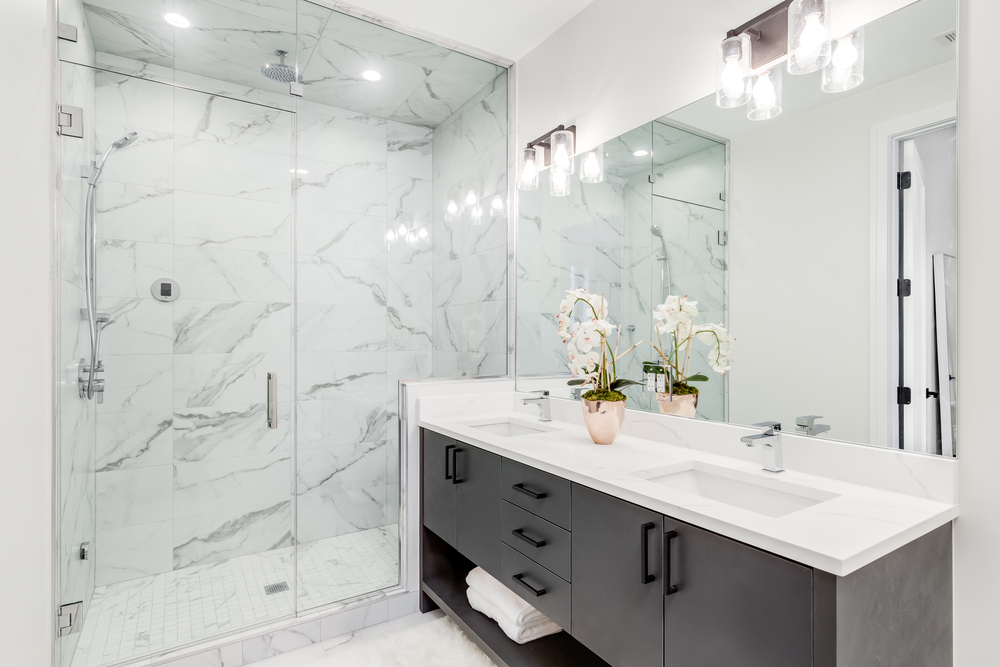
Regular dusting can help prevent debris and particles from scratching the marble surface. Use a soft, dry cloth or a dust mop to gently remove any accumulated dust. Avoid using abrasive materials like scouring pads or brushes, as they can scratch and damage the marble.
In the bathroom, where personal care products are frequently used, be cautious with toiletries containing harsh chemicals. Items like perfumes, hair dyes, and nail polish removers can damage the marble surface. Wipe spills promptly and rinse the area with water to minimize the risk of staining or etching.
While marble is a durable material, heavy or sharp objects can pose a threat to its surface. Avoid dropping or dragging heavy items on the countertop, and use caution when handling tools or products that could potentially chip or scratch the marble. Taking preventive measures helps preserve the countertop’s integrity.
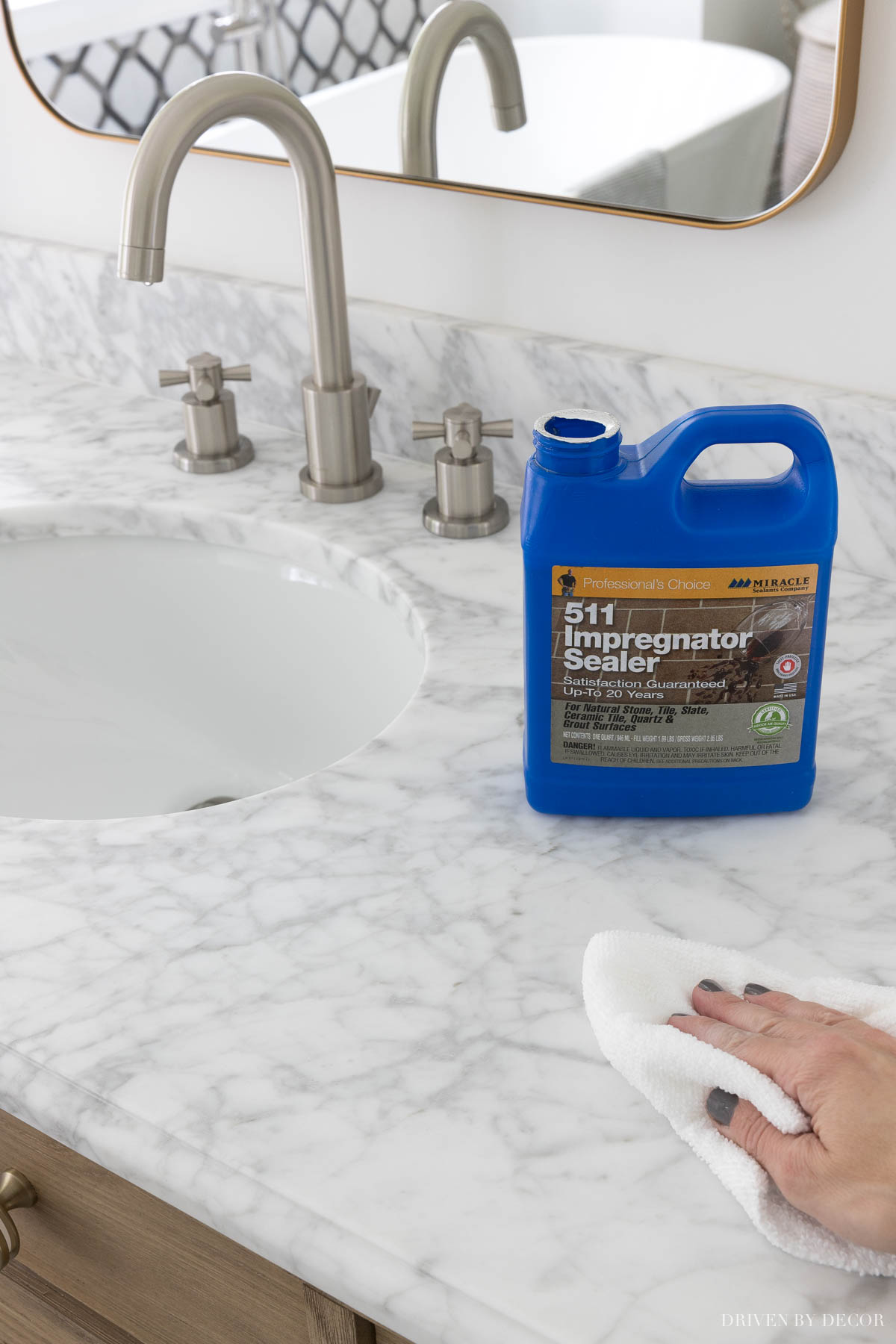
In regions with hard water, mineral deposits can build up on the marble surface, creating a hazy appearance. Regularly wiping down the countertop with a mixture of water and mild dish soap can help prevent this buildup. If mineral deposits do occur, a solution of equal parts water and white vinegar can be used, followed by a thorough rinse.
In areas with high humidity, mold, and mildew can become a concern. Proper ventilation can help mitigate this issue. Additionally, wiping down the marble surface regularly with a damp cloth and ensuring it’s completely dry can prevent the growth of mold and mildew.
For deep cleaning, consider using a specially formulated stone cleaner. These cleaners are designed to remove built-up grime and residues without harming the marble surface. Follow the manufacturer’s instructions carefully to ensure effective and safe cleaning.
For stubborn stains, creating a poultice can be an effective remedy. A poultice is a paste-like mixture applied to the stained area and left to sit until it dries. This can help draw out the stain from the marble. Various poultice recipes exist, often involving a combination of baking soda and a liquid, such as hydrogen peroxide. However, it’s crucial to test any poultice in an inconspicuous area first.
In the event of scratches or etches, marble polishing can be considered to restore the surface. Professional polishing services are available, or you can use a marble polishing powder following the manufacturer’s guidelines. Keep in mind that polishing should be approached with caution, as over-polishing can lead to an uneven surface.
Regular inspections of the marble countertop are advisable to catch any issues early on. Check for signs of wear, stains, or damage, and address them promptly to prevent further deterioration. A proactive approach to maintenance ensures that your marble countertop remains a focal point of beauty in your bathroom for years to come.
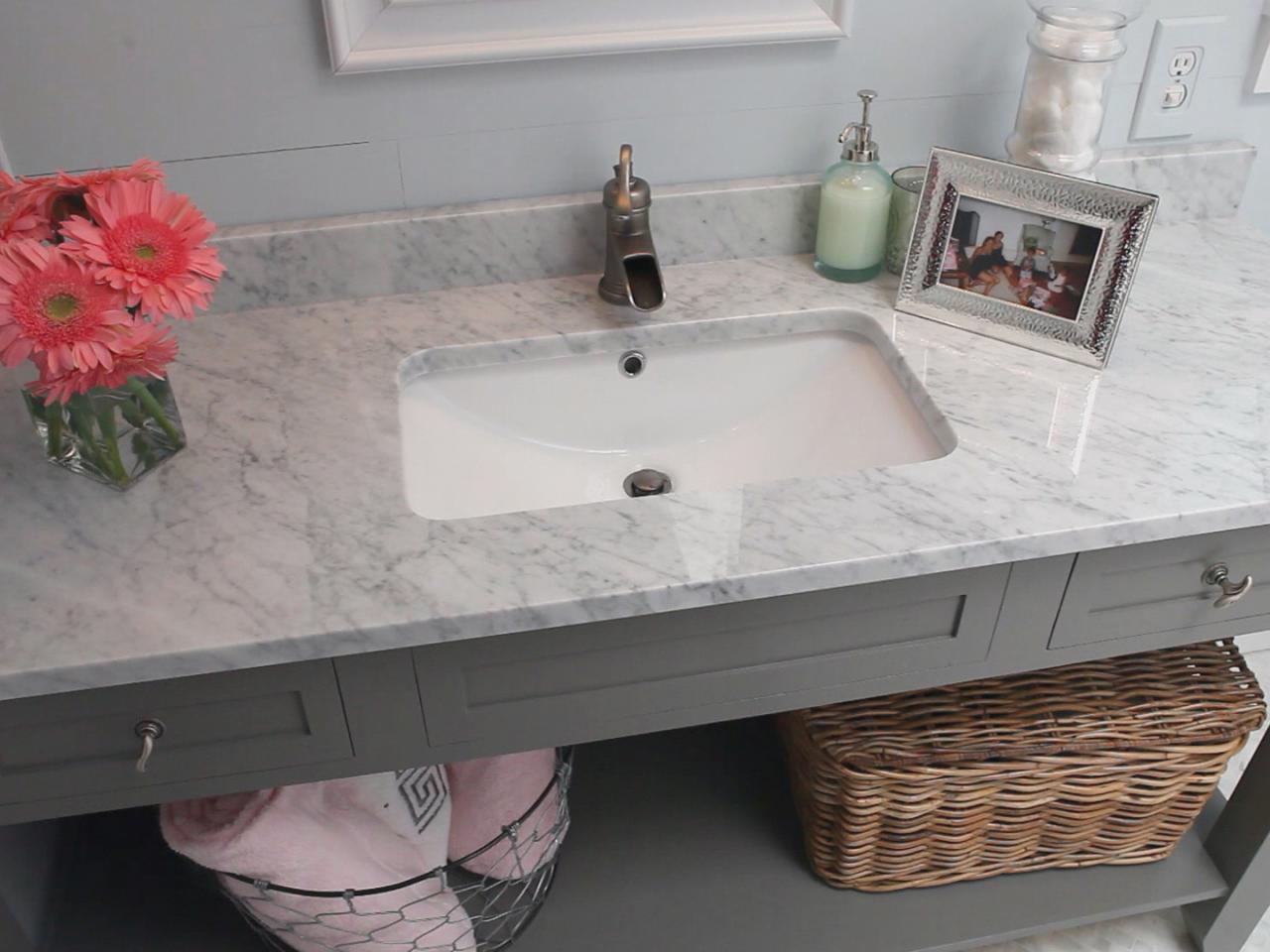
Marble countertops in bathrooms require careful and consistent care to maintain their timeless beauty. From regular cleaning and sealing to preventative measures against stains and scratches, a thoughtful approach to maintenance can significantly extend the life and allure of your marble countertop. By incorporating these care practices into your routine, you can enjoy the elegance of marble in your bathroom for the long term.
How To Clean Marble Countertops u0026 Bathroom Vanities Without
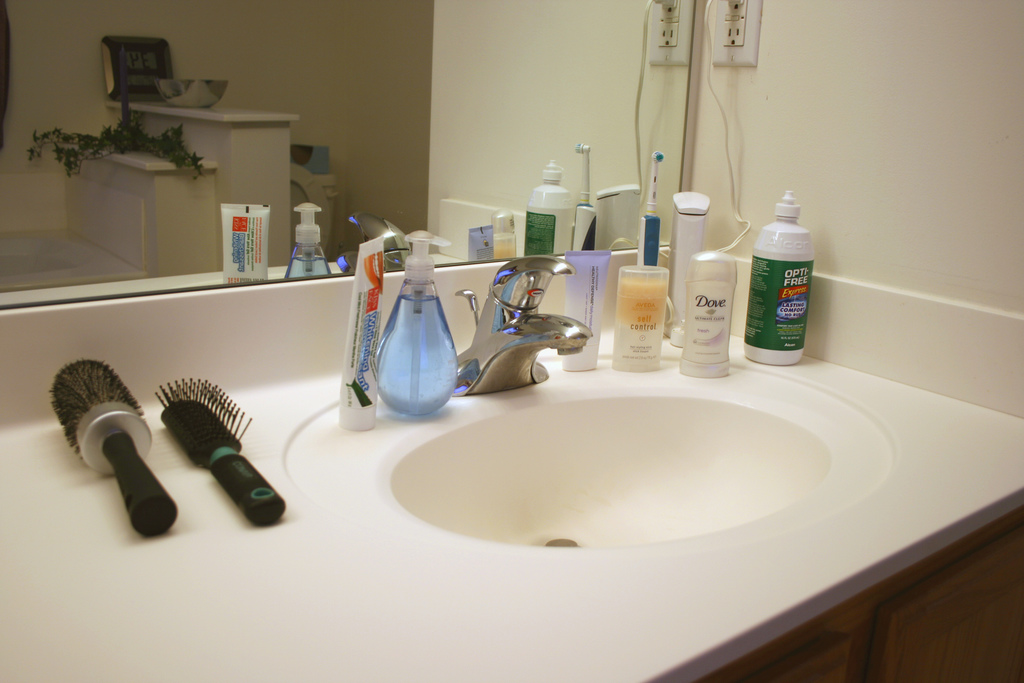
How to Clean White Marble in Your Bathroom – Unique Vanities
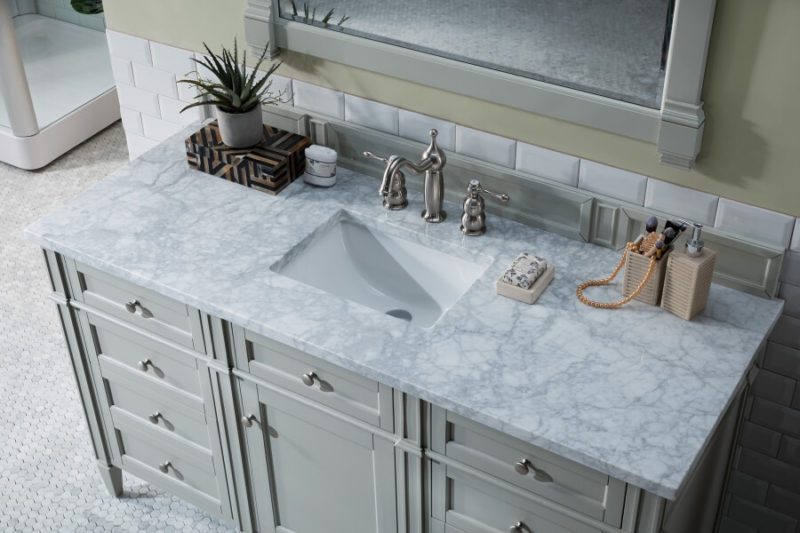
The Pros and Cons of Marble Countertops CounterTop Guides
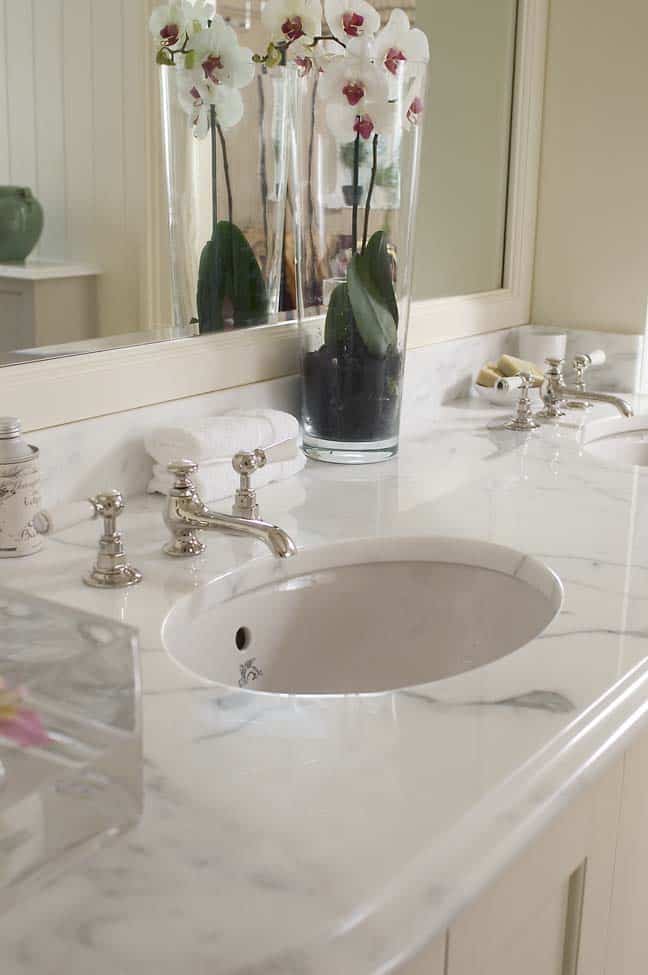
Marble Care and Maintenance 101 Martha Stewart

The Pros u0026 Cons Of Marble Countertops + What I use to Clean Mine –
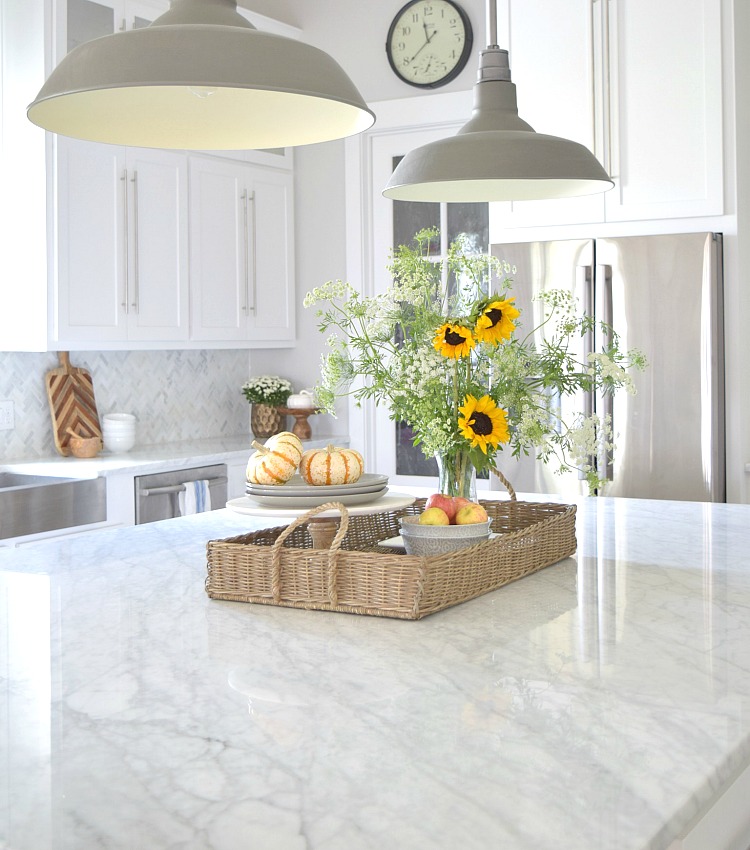
How To Clean Marble Countertops u0026 Bathroom Vanities Without
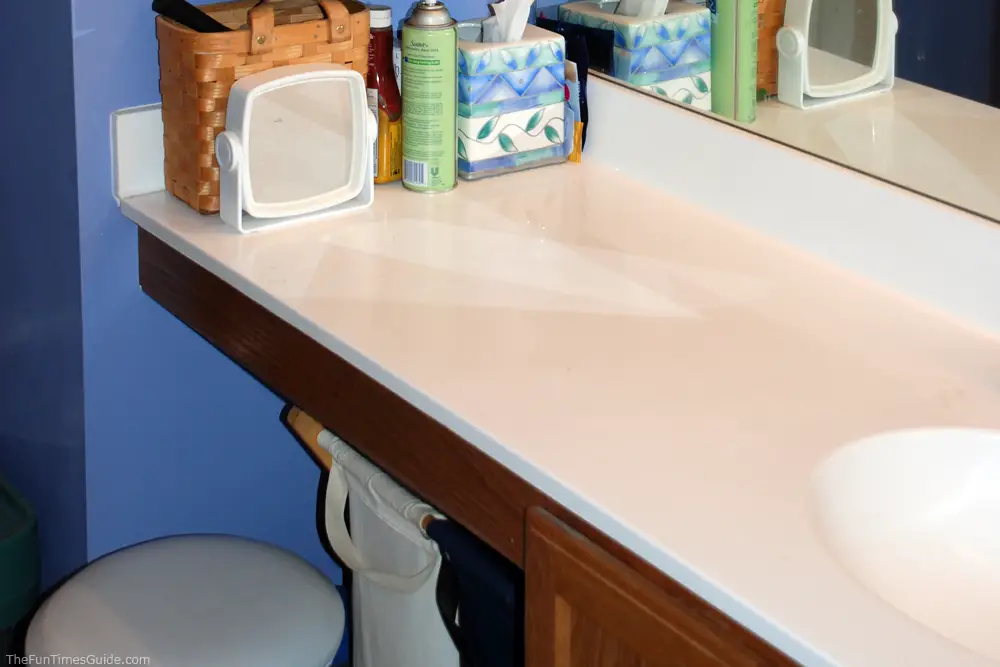
Related articles:
- Bathroom Countertop Refinishing Ideas
- White Quartz Bathroom Countertops
- Small Bathroom Countertop Cabinet
- Grey Bathroom Countertops
- Bathroom Countertop Organization Ideas
- Bathroom Countertops Types
- Rustic Bathroom Countertops
- Bathroom Countertop Redo
- Bathroom Countertop Decor Ideas
- DIY Bathroom Countertop Refinishing